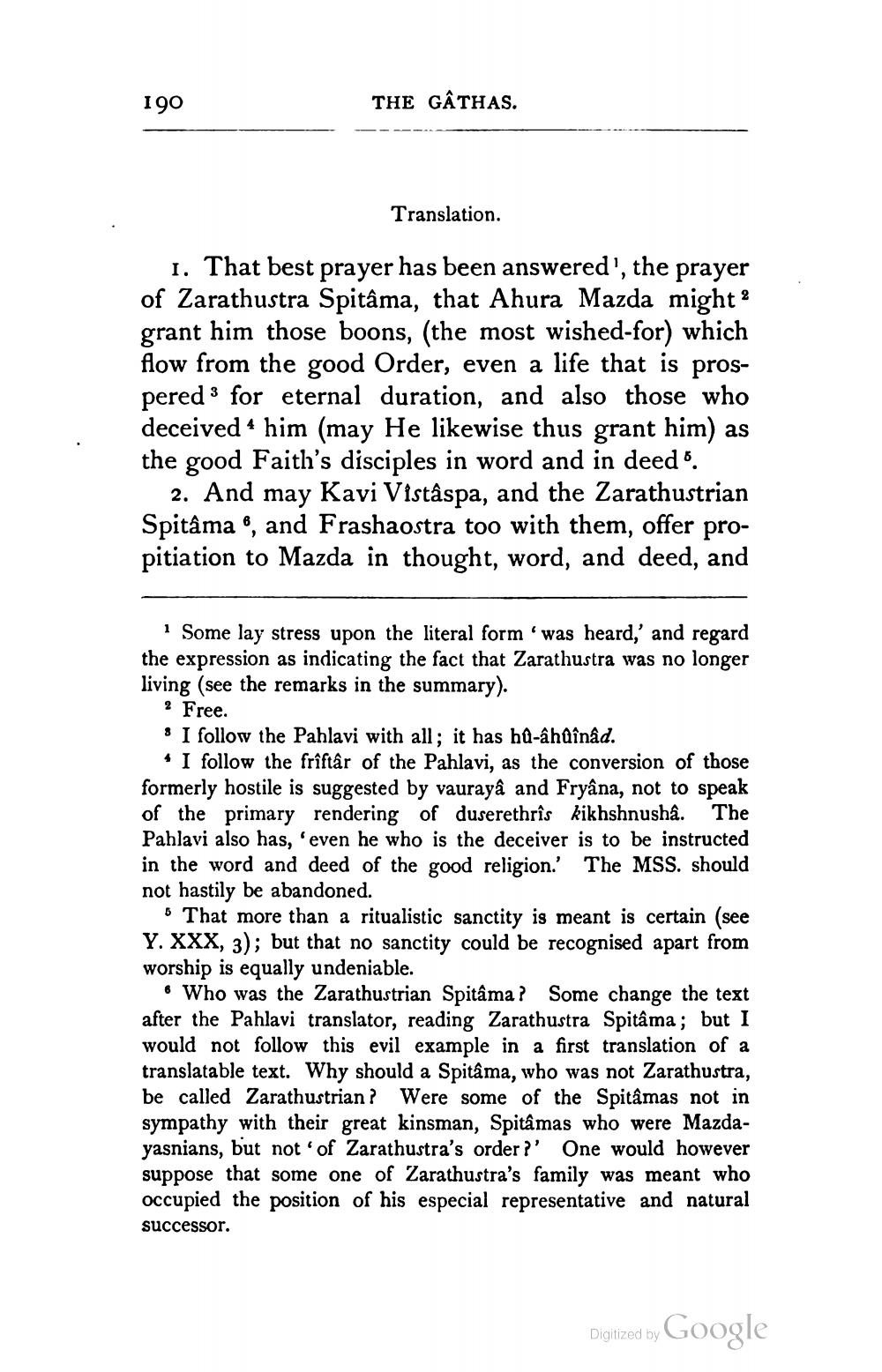________________
190
THE GÂTHAS.
Translation.
1. That best prayer has been answered', the prayer of Zarathustra Spitâma, that Ahura Mazda might 2 grant him those boons, (the most wished-for) which flow from the good Order, even a life that is prospered for eternal duration, and also those who deceived 4 him (may He likewise thus grant him) as the good Faith's disciples in word and in deed.
2. And may Kavi Vistâspa, and the Zarathustrian Spitâma , and Frashaostra too with them, offer propitiation to Mazda in thought, word, and deed, and
Some lay stress upon the literal form was heard,' and regard the expression as indicating the fact that Zarathustra was no longer living (see the remarks in the summary).
2 Free. e I follow the Pahlavi with all; it has hû-âhûînâd.
"I follow the friftâr of the Pahlavi, as the conversion of those formerly hostile is suggested by vaurayâ and Fryâna, not to speak of the primary rendering of duserethrîs kikhshnusha. The Pahlavi also has, 'even he who is the deceiver is to be instructed in the word and deed of the good religion. The MSS. should not hastily be abandoned.
o That more than a ritualistic sanctity is meant is certain (see Y. XXX, 3); but that no sanctity could be recognised apart from worship is equally undeniable.
& Who was the Zarathustrian Spitâma? Some change the text after the Pahlavi translator, reading Zarathustra Spitâma; but I would not follow this evil example in a first translation of a translatable text. Why should a Spitama, who was not Zarathustra, be called Zarathustrian? Were some of the Spitâmas not in sympathy with their great kinsman, Spitâmas who were Mazdayasnians, but not 'of Zarathustra's order?' One would however suppose that some one of Zarathustra's family was meant who occupied the position of his especial representative and natural successor.
Digitized by
Digitized by Google




